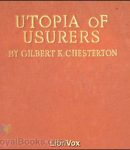
Treatise of Religion
Part diatribe, part discourse, part sermon and part stand-up comedy, this is Fulke Greville’s 114 stanza, verse-poem about religious hypocrisy. (Summary by Michael Armenta) [chương_files]

Part diatribe, part discourse, part sermon and part stand-up comedy, this is Fulke Greville’s 114 stanza, verse-poem about religious hypocrisy. (Summary by Michael Armenta) [chương_files]

John Bunyan (November 28, 1628 – August 31, 1688), a Christian writer and preacher, was born at Harrowden (one mile south-east of Bedford), in the Parish of Elstow, England. He wrote The Pilgrim’s Progress, arguably the most famous published Christian allegory. In the Church of England he is remembered with a Lesser Festival on 30 August. Bunyan became a popular preacher as well as a prolific author, though most of his works consist of expanded sermons. In theology he was a Puritan, but there was nothing gloomy about him. The portrait his friend Robert White drew, which has often been reproduced, shows the attractiveness of his true character. [chương_files]

“Now I have said again and again (and I shall continue to say again and again on all the most inappropriate occasions) that we must hit Capitalism, and hit it hard, for the plain and definite reason that it is growing stronger. Most of the excuses which serve the capitalists as masks are, of course, the excuses of hypocrites. They lie when they claim philanthropy; they no more feel any particular love of men than Albu felt an affection for Chinamen. They lie when they say they have reached their position through their own organising ability. They generally have to pay men to organise the mine, exactly as they pay men to go down it. They often lie about the present wealth, as they generally lie about their past poverty. But when they say that they are going in for a “constructive social policy,” they do not lie. They really are going in for a constructive social policy. And we must go in for an equally destructive social policy; and destroy, while it is still half-constructed, the accursed thing which they construct.” [chương_files]

One of the Pseudepigrapha, the Psalms of Solomon is a group of eighteen psalms (religious songs or poems) that are not part of any scriptural canon (they are, however, found in copies of the Peshitta). The Psalms of Solomon were referenced in Early Christian writings, but lost to modern scholars until a Greek manuscript was rediscovered in the 17th century. Politically, the Psalms of Solomon are anti-Maccabee, and some psalms in the collection show a clear awareness of the Roman conquest of Jerusalem under Pompey in 63 BCE, metaphorically treating him as a dragon who had been sent by God to punish the Maccabees. The Odes of Solomon is a collection of 42 odes attributed to Solomon. Various scholars have dated the composition of these religious poems to anywhere in the range of the first three centuries AD. The original language of the Odes is thought to have been either Greek or Syriac, and to be generally Christian in background. (Summary by Wikipedia) [chương_files]

“On the road to Cairo one may see twenty groups exactly like that of the Holy Family in the pictures of the Flight into Egypt; with only one difference. The man is riding on the ass.” “The real mistake of the Muslims is something much more modern in its application than any particular passing persecution of Christians as such. It lay in the very fact that they did think they had a simpler and saner sort of Christianity, as do many modern Christians. They thought it could be made universal merely by being made uninteresting. Now a man preaching what he thinks is a platitude is far more intolerant than a man preaching what he admits is a paradox. It was exactly because it seemed self-evident, to Muslims as to Bolshevists, that their simple creed was suited to everybody, that they wished in that particular sweeping fashion to impose it on everybody.” [chương_files]

A collection of short Christmas works by the author of The Story of the Fourth Wise Man [chương_files]

Colonel Robert Green Ingersoll (1833–1899) was a Civil War veteran, American political leader and orator during the Golden Age of Freethought, noted for his defense of atheism. This book is the first of two volumes collecting Ingersoll’s speeches. [chương_files]

Rabindranath Tagore was a Bengali poet, philosopher, visual artist, playwright, composer, and novelist whose work reshaped Bengali literature and music in the late 19th and early 20th centuries. He became Asia’s first Nobel laureate when he won the 1913 Nobel Prize in Literature. Sadhana is a collection of essays, most of which he gave before the Harvard University, describing Indian beliefs, philosophy and culture from different viewpoints, often making comparison with Western thought and culture. [chương_files]

When Bethany Hallam travels to Chattanooga for the League Conference, she meets David Herschel, who challenges her thinking and changes her views about her missionary obligations to God’s “chosen people.” ( Esther ben Simonides) [chương_files]

Part diatribe, part discourse, part sermon and part stand-up comedy, this is Fulke Greville’s 114 stanza, verse-poem about religious hypocrisy. [chương_files]
Copyright © 2024 | FreeAudible